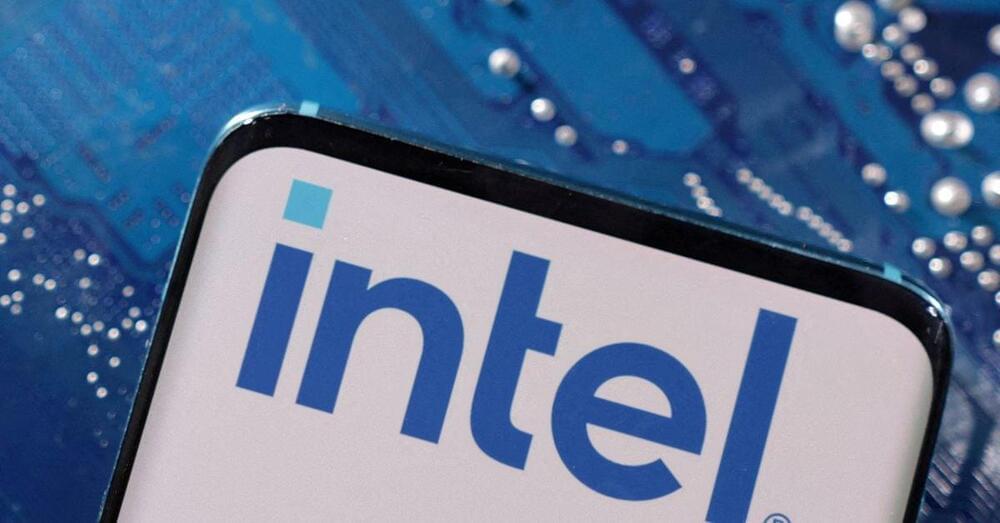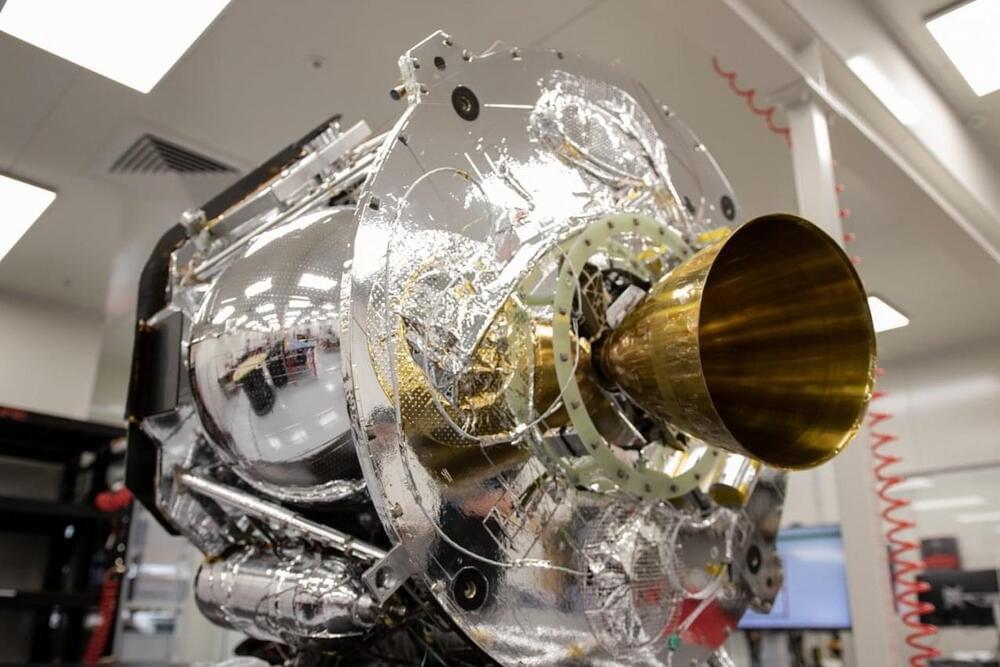Businesses and government agencies must scan code for RSA & old protocols, replacing them with post-quantum cryptography to thwart quantum threats to encryption.




JAC Motors, a Volkswagen-backed Chinese automaker, is set to launch the first mass-produced electric vehicle (EV) with a sodium-ion battery through its new Yiwei brand. Although sodium-ion battery tech has a lower density (and is less mature) than lithium-ion, its lower costs, more abundant supplies and superior cold-weather performance could help accelerate mass EV adoption. CarNewsChina reports that the JAC Yiwei EV hatchback deliveries will begin in January.
Yiwei is a new brand in 2023 for JAC. Volkswagen has a 75 percent stake in (and management control of) JAC and owns 50 percent of JAC’s parent company, Anhui Jianghuai Automobile Group Holdings (JAG). The Chinese government owns the other half of JAG, making for one of the auto industry’s stranger pairings.
The Yiwei EV appears to be a rebranded version of the Sehol E10X hatchback (above), announced earlier this year. CarNewsChina describes the Sehol model as having a 252 km (157 miles) range with a 25 kWh capacity, 120 Wh / kg energy density, 3C to 4C charging, and a HiNa NaCR32140 cell. When JAC revealed the Yiwei brand in May, it said it would drop the Sehol label and rebrand all its vehicles to either JAC or Yiwei, leading us to this week’s EV reveal. JAC hasn’t yet said whether the Yiwei-branded model will keep the E10X moniker.

JERUSALEM, Dec 26 (Reuters) — Israel’s government agreed to give Intel (INTC.O) a $3.2 billion grant for a new $25 billion chip plant it plans to build in southern Israel, both sides said on Tuesday, in what is the largest investment ever by a company in Israel.
The news comes as Israel remains locked in a war with Palestinian militant group Hamas in the wake of the Oct. 7 Hamas attack on Israel. It also is a big show of support by a major U.S. company and a generous offer by Israel’s government at a time when Washington has increased pressure on Israel to take further steps to minimise civilian harm in Gaza.
Shares of Intel, which has a bit less than 10% of its global workforce in Israel, opened up 2.73% at $49.28 on Nasdaq.

BEIJING/SHANGHAI, Dec 22 (Reuters) — Tesla (TSLA.O) has acquired land in Shanghai for a megapack battery manufacturing plant with production expected to start in the fourth quarter of 2024, Chinese state media reported on Friday.
Tesla paid 222.42 million yuan ($31.13 million) for use rights to a 19.7-hectare (48.7 acres) plot, a separate government statement said on Thursday. The site is near an existing Tesla plant producing Model 3 and Model Y cars.
Tesla did not immediately respond to a request for comment.

WASHINGTON — Space launch provider and satellite manufacturer Rocket Lab has secured a deal worth over half a billion dollars to build 18 satellites for a U.S. government agency.
As disclosed in an SEC regulatory filing Dec. 21, Rocket Lab National Security will “design, manufacture, deliver and operate 18 space vehicles” as part of a U.S. government contract valued at $515 million. A spokesperson said the company could not provide further details.
Sources indicate that the customer is likely the Space Development Agency.

Occam’s razor—the principle that when faced with competing explanations, we should choose the simplest that fits the facts—is not just a tool of science. Occam’s razor is science, insists a renowned molecular geneticist from the University of Surrey.
In a paper published in the Annals of the New York Academy of Sciences, Professor Johnjoe McFadden argues Occam’s razor—attributed to the Surrey-born Franciscan friar William of Occam (1285–1347)—is the only feature that differentiates science from superstition, pseudoscience or fake news.
Professor McFadden said, “What is science? The rise of issues such as vaccine hesitancy, climate skepticism, alternative medicine, and mysticism reveals significant levels of distrust or misunderstanding of science among the general public. The ongoing COVID inquiry also highlights how scientific ignorance extends into the heart of government. Part of the problem is that most people, even most scientists, have no clear idea of what science is actually about.”

DARPA’s Underexplored Systems for Utility-Scale Quantum Computing (US2QC) program seeks to determine whether an underexplored approach to quantum computing can achieve utility-scale operation — meaning its computational value exceeds its cost — faster than conventional predictions.
In the initial phase, each company presented a design concept describing their plans to create a utility-scale quantum computer. In the follow-on phase, selected performers aim to take their concepts to the next level. Now, US2QC’s key goal centers on developing and defending a system design for a fault-tolerant prototype, a smaller-scale quantum computer demonstrating that a utility-scale quantum computer can be constructed as designed and operated as intended.
This prototype system design will identify all required components and sub-systems and establish their minimum performance requirements. A DARPA-led government test and evaluation team consisting of technical experts will evaluate design viability.
Like China, the US sees AI as a key to both a military and economic power in the 21st century. Both Republicans and Democrats in DC are concerned about the rate of Chinese advancement. In fact, the running joke on Capitol Hill is that the only thing they can agree on is The Chinese Threat.
Toward this end, Congress recently passed The CHIPS Act and the Executive Branch has been implementing trade controls to deny technology that they believe are critical for developing AI in China. While this desire is rational, it is unlikely to work in the mid-to long-term, and it will only increase geopolitical tension.
The US strategy of technology relies on seven realities that, while true today, are unlikely to all be true tomorrow.
In this episode, my guest is Dr. Robert Lustig, M.D., neuroendocrinologist, professor of pediatrics at the University of California, San Francisco (UCSF), and a bestselling author on nutrition and metabolic health. We address the “calories in-calories out” (CICO) model of metabolism and weight regulation and how specific macronutrients (protein, fat, carbohydrates), fiber and sugar can modify the CICO equation. We cover how different types of sugars, specifically fructose, sugars found in liquid form, taste intensity, and other factors impact insulin levels, liver, kidney, and metabolic health. We also explore how fructose in non-fruit sources can be addictive (acting similarly to drugs of abuse) and how sugar alters brain circuits related to food cravings and satisfaction. We discuss the role of sugar in childhood and adult obesity, gut health and disease and mental health. We also discuss how the food industry uses refined sugars to create pseudo foods and what these do to the brain and body. This episode is replete with actionable information about sugar and metabolism, weight control, brain health and body composition. It ought to be of interest to anyone seeking to understand how specific food choices impact the immediate and long-term health of the brain and body. For the show notes, including referenced articles and additional resources, please visit https://www.hubermanlab.com/episode/dr-robert-lustig-how-sug…our-health Thank you to our sponsors AG1: https://drinkag1.com/huberman Eight Sleep: https://eightsleep.com/huberman Levels: https://levels.link/huberman AeroPress: https://aeropress.com/huberman LMNT: https://drinklmnt.com/huberman Momentous: https://livemomentous.com/huberman Huberman Lab Social & Website Instagram: https://www.instagram.com/hubermanlab Twitter: https://twitter.com/hubermanlab Facebook: https://www.facebook.com/hubermanlab TikTok: https://www.tiktok.com/@hubermanlab LinkedIn: https://www.linkedin.com/in/andrew-huberman Website: https://www.hubermanlab.com Newsletter: https://www.hubermanlab.com/newsletter Dr. Robert Lustig Website: https://robertlustig.com Books: https://robertlustig.com/books Publications: https://robertlustig.com/publications Blog: https://robertlustig.com/blog UCSF academic profile: https://profiles.ucsf.edu/robert.lustig Metabolical (book): https://amzn.to/48mNhOE SugarScience: http://sugarscience.ucsf.edu X: https://twitter.com/RobertLustigMD Facebook: https://www.facebook.com/DrRobertLustig LinkedIn: https://www.linkedin.com/in/robert-lustig-8904245 Instagram: https://www.instagram.com/robertlustigmd Threads: https://www.threads.net/@robertlustigmd Timestamps 00:00:00 Dr. Robert Lustig 00:02:02 Sponsors: Eight Sleep, Levels & AeroPress 00:06:41 Calories, Fiber 00:12:15 Calories, Protein & Fat, Trans Fats 00:18:23 Carbohydrate Calories, Glucose vs. Fructose, Fruit, Processed Foods 00:26:43 Fructose, Mitochondria & Metabolic Health 00:31:54 Trans Fats; Food Industry & Language 00:35:33 Sponsor: AG1 00:37:04 Glucose, Insulin, Muscle 00:42:31 Insulin & Cell Growth vs. Burn; Oxygen & Cell Growth, Cancer 00:51:14 Glucose vs. Fructose, Uric Acid; “Leaky Gut” & Inflammation 01:00:51 Supporting the Gut Microbiome, Fasting 01:04:13 Highly Processed Foods, Sugars; “Price Elasticity” & Food Industry 01:10:28 Sponsor: LMNT 01:11:51 Processed Foods & Added Sugars 01:14:19 Sugars, High-Fructose Corn Syrup 01:18:16 Food Industry & Added Sugar, Personal Responsibility, Public Health 01:30:04 Obesity, Diabetes, “Hidden” Sugars 01:34:57 Diet, Insulin & Sugars 01:38:20 Tools: NOVA Food Classification; Perfact Recommendations 01:43:46 Meat & Metabolic Health, Eggs, Fish 01:46:44 Sources of Omega-3s; Vitamin C & Vitamin D 01:52:37 Tool: Reduce Inflammation; Sugars, Cortisol & Stress 01:59:12 Food Industry, Big Pharma & Government; Statins 02:06:55 Public Health Shifts, Rebellion, Sugar Tax, Hidden Sugars 02:12:58 Real Food Movement, Public School Lunches & Processed Foods 02:18:25 3 Fat Types & Metabolic Health; Sugar, Alcohol & Stress 02:26:40 Artificial & Non-Caloric Sweeteners, Insulin & Weight Gain 02:34:32 Re-Engineering Ultra-Processed Food 02:38:45 Sugar & Addiction, Caffeine 02:45:18 GLP-1, Semaglutide (Ozempic, Wegovy, Tirzepatide), Risks; Big Pharma 02:57:39 Obesity & Sugar Addiction; Brain Re-Mapping, Insulin & Leptin Resistance 03:03:31 Fructose & Addiction, Personal Responsibility & Tobacco 03:07:27 Food Choices: Fruit, Rice, Tomato Sauce, Bread, Meats, Fermented Foods 03:12:54 Intermittent Fasting, Diet Soda, Food Combinations, Fiber, Food Labels 03:19:14 Improving Health, Advocacy, School Lunches, Hidden Sugars 03:26:55 Zero-Cost Support, Spotify & Apple Reviews, YouTube Feedback, Sponsors, Momentous, Social Media, Neural Network Newsletter #HubermanLab #Science #Nutrition Title Card Photo Credit: Mike Blabac — https://www.blabacphoto.com Disclaimer: https://hubermanlab.com/disclaimer